Shows
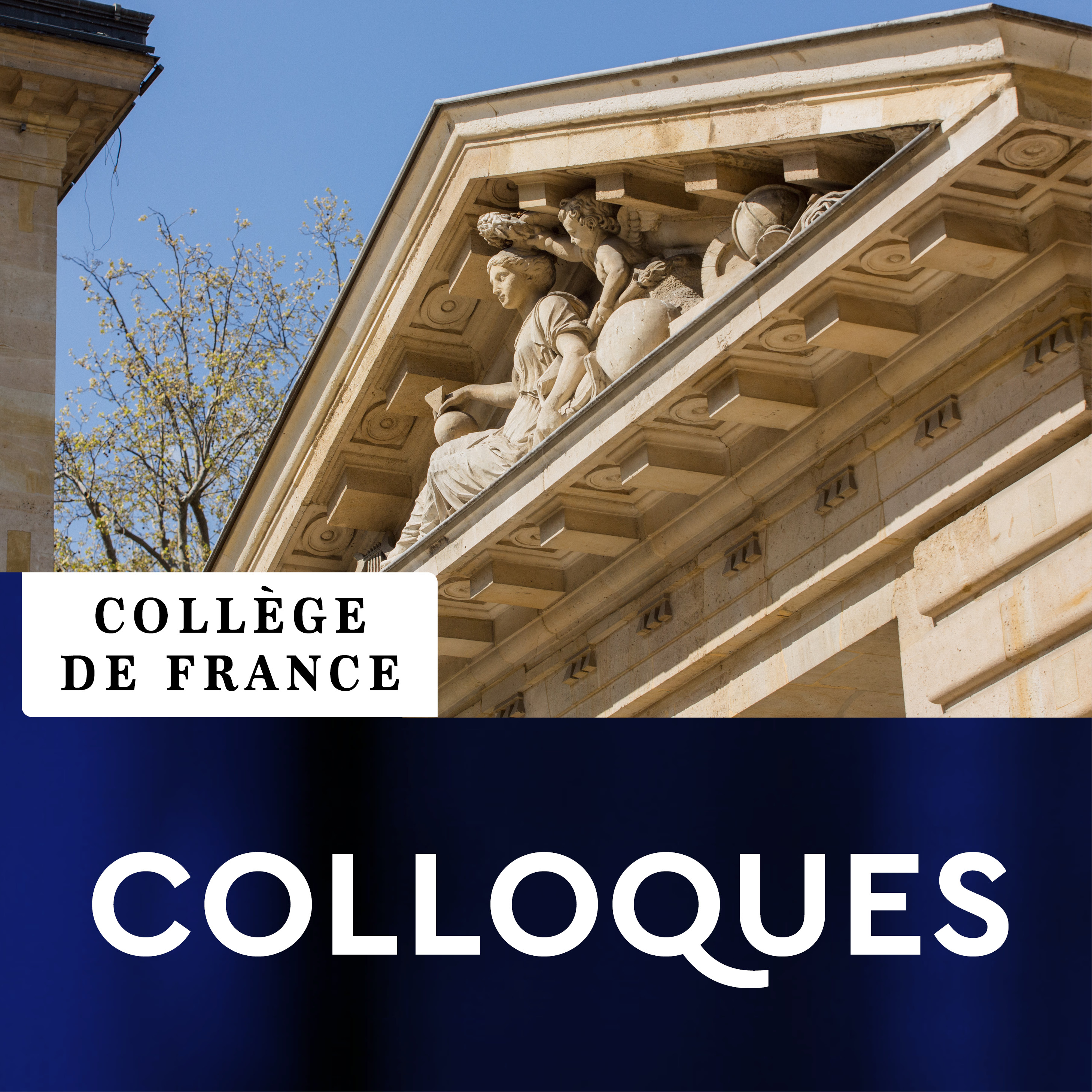
Colloques du Collège de France - Collège de FranceColloque - Stanislas Dehaene : Concluding RemarksStanislas DehaeneChaire Psychologie cognitive expérimentaleAnnée 2025-2026Collège de FranceColloque : Seeing the Mind, Educating the BrainConcluding RemarksColloque - Stanislas Dehaene : Concluding RemarksStanislas Dehaene
2025-10-0309 min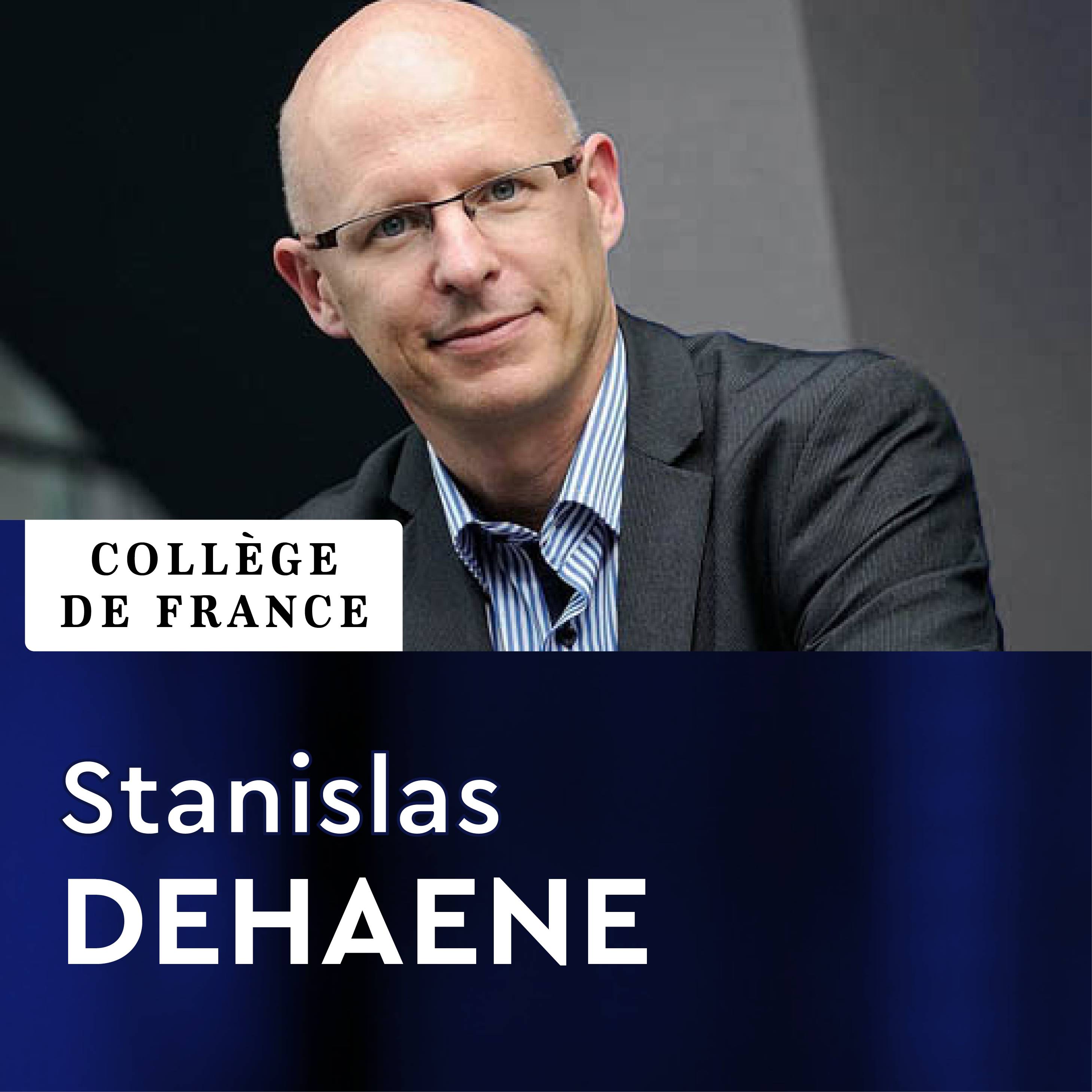
Psychologie cognitive expérimentale - Stanislas DehaeneColloque - Stanislas Dehaene : Concluding RemarksStanislas DehaeneChaire Psychologie cognitive expérimentaleAnnée 2025-2026Collège de FranceColloque : Seeing the Mind, Educating the BrainConcluding RemarksColloque - Stanislas Dehaene : Concluding RemarksStanislas Dehaene
2025-10-0309 min
Literacy TalksExploring Stanislas Dehaene's Groundbreaking Research on Reading AcquisitionThe trio dives into the insights and research of renowned neuroscientist Stanislas Dehaene on the cognitive science of reading. Dehaene's work has revolutionized our understanding of how the brain learns to read, from the development of the visual word form area to the neural markers of dyslexia. The hosts unpack Dehaene's explanations of the brain's recycling of pre-existing circuits for reading, the competition and collaboration between reading and facial recognition, and the different subtypes of reading challenges. Throughout the discussion, they highlight Dehaene's practical teaching recommendations grounded in the latest neuroscience, providing educators with a roadmap to f...
2024-11-2153 min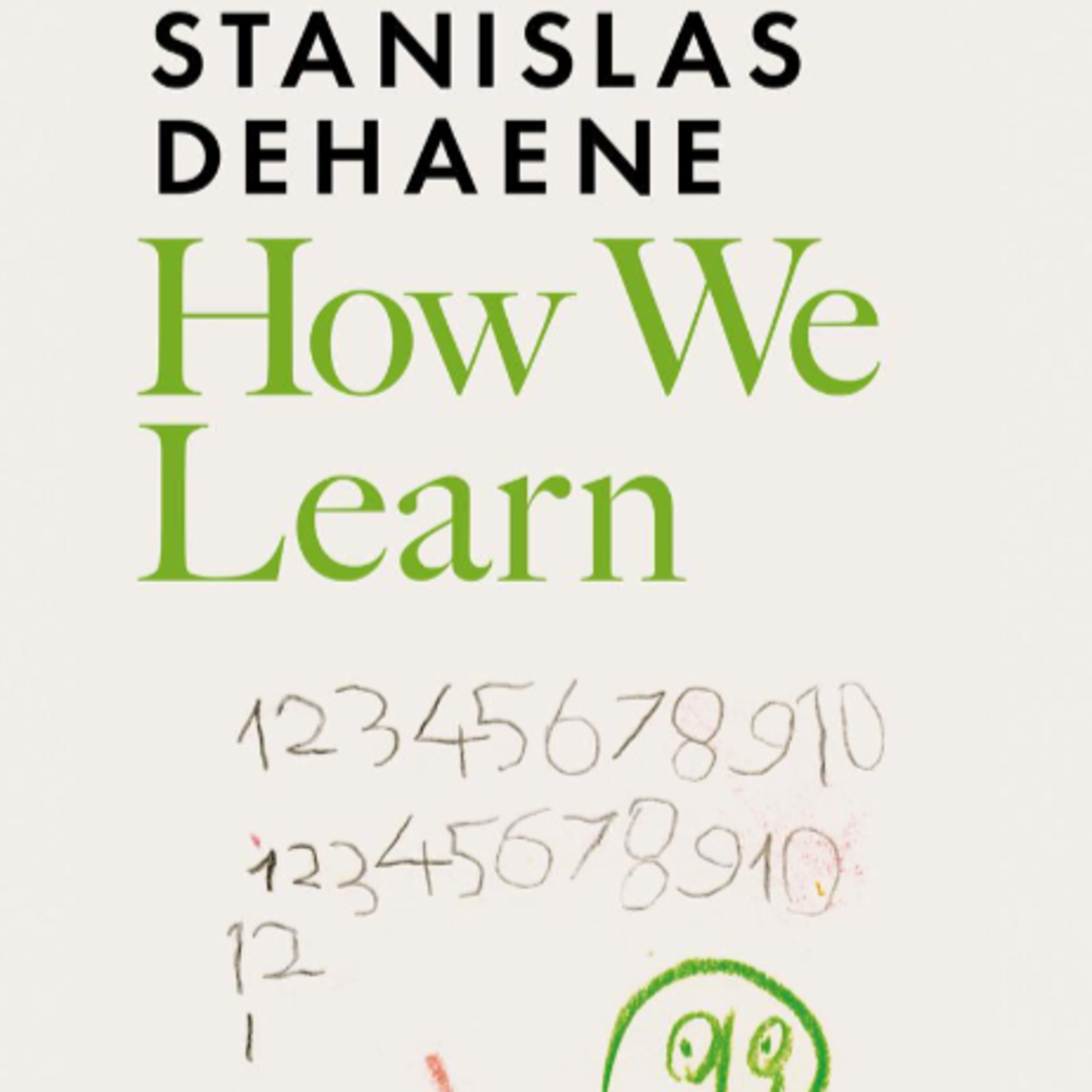
Wealth of WordsStanislas Dehaene's book, How We Learn,Stanislas Dehaene's book, "How We Learn," explores the intricate workings of the human brain as a learning machine, comparing it to the capabilities and limitations of artificial intelligence. The book highlights the remarkable ability of humans to learn from minimal data, understand abstract concepts, and engage in complex social interactions, abilities that surpass current AI systems. Dehaene also emphasizes the profound impact of education on cognitive development, showing how it transforms basic human capabilities into sophisticated skills like literacy and mathematics. The book concludes with a call for better educational strategies to ensure all children reach their full potential b...
2024-11-1112 min
Chaptered MindsHow We Learn: The New Science of Education and the Brain by Stanislas DehaeneIn this episode of Chaptered Minds, we explore How We Learn by Stanislas Dehaene, a groundbreaking look at the science behind how our brains acquire, process, and retain knowledge. Our AI hosts discuss Dehaene’s insights into the four pillars of learning—attention, active engagement, error feedback, and consolidation—and how understanding these can transform the way we teach and learn. This episode highlights the latest neuroscience research on education and offers practical tips for optimising learning outcomes. Tune in for an enlightening conversation on how we can apply these scientific principles to improve education and personal learning.
2024-10-2110 min
Psychologie cognitive expérimentaleStanislas Dehaene - Retrouvez la nouvelle adresse sur www.college-de-france.frStanislas Dehaene
Collège de France - Année 2020-2021
Chaire de Psychologie Cognitive Expérimentale
http://podcast.college-de-france.fr/xml2/cdf3-5.xml
https://podcasts.apple.com/fr/podcast/psychologie-cognitive-exp%C3%A9rimentale-coll%C3%A8ge-de-france/id868740725
2021-04-1700 min
Curiosity WeeklyTap into the 4 Pillars of Learning (w/ Stanislas Dehaene) and How We Get Seedless FruitRenowned cognitive neuroscientist Stanislas Dehaene explains how you can learn new things by tapping into the four pillars of learning. But first, you’ll learn about how we get seedless fruit.
How do we get seedless fruit? by Cameron Duke
How Do Farmers Make Seedless Fruit? (2015). [YouTube Video]. In YouTube.
https://www.youtube.com/watch?v=ewtlsEb4Vgk
How do seedless fruits arise and how are they propagated? (n.d.). Scientific American. Retrieved May 29, 2020, from https://www.scientificamerican.com/article/how-do-seedless-fruits-ar/
Seedless Fruit. (n.d.). ScienceDaily. Retrieved May 29, 2020, from https://www.sciencedaily.com/terms/parthenocarpy.htm
Dunn, Rob. (2017, March 14). Humans Made...
2020-06-2510 min
Curiosity WeeklyNew Science on How We Learn (w/ Stanislas Dehaene), Why Stores Use Air Curtains, and Desert Microbes that Dissolve Rocks with AcidLearn about why air curtains blast you with air when you walk into certain stores; microbes that survive in the desert by dissolving rocks with acid; and the latest research into how we learn, with help from renowned cognitive neuroscientist Stanislas Dehaene.
That blast of air when you walk into a business has a name: an air curtain by Grant Currin
Ashish. (2018, March 21). Air Curtain Door At Entrance: Why There Is A Blast Of Air At Mall’s Entrance? Science ABC. https://www.scienceabc.com/eyeopeners/why-is-there-a-blast-of-coldhot-air-at-the-entrances-of-shopping-malls.html
Air Curtains 101 | What is an Air Curtain? | Berner. (2020, May 28). Berner. https://berner.com...
2020-06-2411 min
Curious Minds at WorkCM 164: Stanislas Dehaene On How We LearnWhat are the skills that can help us learn new things more quickly and efficiently?
Our ability to learn sets us apart from other species. Yet few of us understand how to maximize this ability.
Stanislas Dehaene, Director of the NeuroSpin Brain Imaging Center in Saclay, France, and Professor of Experimental Cognitive Psychology at the College de France, can help. In his latest book, How We Learn: Why Brains Learn Better Than Any Machine...for Now, he explains how the human brain is designed for learning. Next, he shares exactly what we need to optimize our learning.
Sleep is one...
2020-06-2242 min
Brain Science with Ginger Campbell, MD: Neuroscience for EveryoneNeuroscientist Stanislas Dehaene explores "How We Learn"This is an interview with Stanislas Dehaene about his new book How We Learn: Why Brains Learn Better Than Any Machine . . . for Now. According to neuroscientist Dehaene neuroscience has revealed that human babies are incredible "learning machines" whose abilities exceed those of the best current artificial intelligence. We explore why this is so and how this information could be used to help learners (and teachers) of all ages. Links and References: How We Learn: Why Brains Learn Better Than Any Machine . . . for Now by Stanislas Dehaene Visit http://brainsciencepodcast.com for additional references and episode transcripts. ...
2020-02-141h 06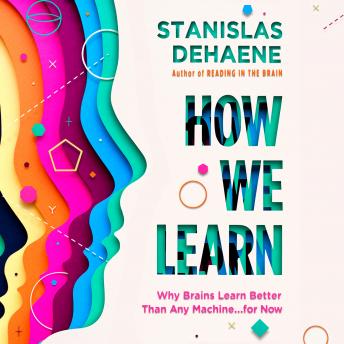
Enjoy An Mind-Blowing Full Audiobook And Elevate Your Mindset.How We Learn: Why Brains Learn Better Than Any Machine . . . for Now by Stanislas DehaenePlease visithttps://thebookvoice.com/podcasts/1/audiobook/383875to listen full audiobooks.
Title: How We Learn: Why Brains Learn Better Than Any Machine . . . for Now
Author: Stanislas Dehaene
Narrator: Kaleo Griffith
Format: Unabridged Audiobook
Length: 10 hours 2 minutes
Release date: January 28, 2020
Ratings: Ratings of Book: 5 of Total 2
Ratings of Narrator: 5 of Total 1
Genres: Biology & Chemistry
Publisher's Summary:
“There are words that are so familiar they obscure rather than illuminate the thing they mean, and ‘learning’ is such a word. It seems so ordinary, everyone does it. Actually it’s more of a black box, which Dehaene cracks open to reveal the awesome secrets within.”...
2020-01-2810h 02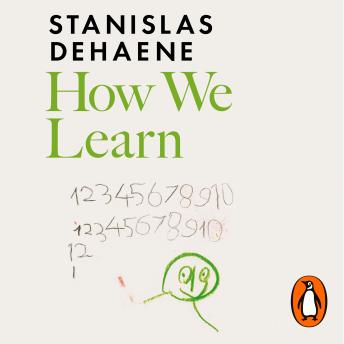
Fuel Your Mind With The Next-Level Full Audiobook Now, Curious Minds!How We Learn: The New Science of Education and the Brain by Stanislas DehaenePlease visithttps://thebookvoice.com/podcasts/1/audiobook/408161to listen full audiobooks.
Title: How We Learn: The New Science of Education and the Brain
Author: Stanislas Dehaene
Narrator: Kaleo Griffith
Format: Unabridged Audiobook
Length: 10 hours 1 minute
Release date: January 28, 2020
Ratings: Ratings of Book: 3 of Total 1
Ratings of Narrator: 5 of Total 1
Genres: Computers & Technology
Publisher's Summary:
Brought to you by Penguin. In today's technological society, with an unprecedented amount of information at our fingertips, learning plays a more central role than ever. In How We Learn, Stanislas Dehaene decodes its biological mechanisms, delving into the neuronal, synaptic, and molecular processes taking place in...
2020-01-2810h 01
Begin The Breakthrough Full Audiobook Experience!How We Learn: The New Science of Education and the Brain by Stanislas DehaenePlease visithttps://thebookvoice.com/podcasts/1/audiobook/408161to listen full audiobooks.
Title: How We Learn: The New Science of Education and the Brain
Author: Stanislas Dehaene
Narrator: Kaleo Griffith
Format: Unabridged Audiobook
Length: 10 hours 1 minute
Release date: January 28, 2020
Ratings: Ratings of Book: 3 of Total 1
Ratings of Narrator: 5 of Total 1
Genres: Biology & Chemistry
Publisher's Summary:
Brought to you by Penguin. In today's technological society, with an unprecedented amount of information at our fingertips, learning plays a more central role than ever. In How We Learn, Stanislas Dehaene decodes its biological mechanisms, delving into the neuronal, synaptic, and molecular processes taking place in...
2020-01-2810h 01
Access Must-Have Full Audiobooks in Non-Fiction, Biology & ChemistryHow We Learn: Why Brains Learn Better Than Any Machine . . . for Now by Stanislas DehaenePlease visithttps://thebookvoice.com/podcasts/1/audiobook/383875to listen full audiobooks.
Title: How We Learn: Why Brains Learn Better Than Any Machine . . . for Now
Author: Stanislas Dehaene
Narrator: Kaleo Griffith
Format: Unabridged Audiobook
Length: 10 hours 2 minutes
Release date: January 28, 2020
Ratings: Ratings of Book: 5 of Total 2
Ratings of Narrator: 5 of Total 1
Genres: Biology & Chemistry
Publisher's Summary:
“There are words that are so familiar they obscure rather than illuminate the thing they mean, and ‘learning’ is such a word. It seems so ordinary, everyone does it. Actually it’s more of a black box, which Dehaene cracks open to reveal the awesome secrets within.”...
2020-01-2810h 02
Access Must-Have Full Audiobooks in Non-Fiction, Biology & ChemistryHow We Learn: The New Science of Education and the Brain by Stanislas DehaenePlease visithttps://thebookvoice.com/podcasts/1/audiobook/408161to listen full audiobooks.
Title: How We Learn: The New Science of Education and the Brain
Author: Stanislas Dehaene
Narrator: Kaleo Griffith
Format: Unabridged Audiobook
Length: 10 hours 1 minute
Release date: January 28, 2020
Ratings: Ratings of Book: 3 of Total 1
Ratings of Narrator: 5 of Total 1
Genres: Biology & Chemistry
Publisher's Summary:
Brought to you by Penguin. In today's technological society, with an unprecedented amount of information at our fingertips, learning plays a more central role than ever. In How We Learn, Stanislas Dehaene decodes its biological mechanisms, delving into the neuronal, synaptic, and molecular processes taking place in...
2020-01-2810h 01
Access Essential Full Audiobooks in Non-Fiction, Computers & TechnologyHow We Learn: The New Science of Education and the Brain by Stanislas DehaenePlease visithttps://thebookvoice.com/podcasts/1/audiobook/408161to listen full audiobooks.
Title: How We Learn: The New Science of Education and the Brain
Author: Stanislas Dehaene
Narrator: Kaleo Griffith
Format: Unabridged Audiobook
Length: 10 hours 1 minute
Release date: January 28, 2020
Ratings: Ratings of Book: 3 of Total 1
Ratings of Narrator: 5 of Total 1
Genres: Computers & Technology
Publisher's Summary:
Brought to you by Penguin. In today's technological society, with an unprecedented amount of information at our fingertips, learning plays a more central role than ever. In How We Learn, Stanislas Dehaene decodes its biological mechanisms, delving into the neuronal, synaptic, and molecular processes taking place in...
2020-01-2810h 01
EntretiensStanislas Dehaene - Faut-il avoir peur des avancées en psychologie cognitive ?Stanislas Dehaene
Collège de France
Chaire Psychologie cognitive expérimentale
Faut-il avoir peur des avancées en psychologie cognitive ?
2014-05-2403 min
EntretiensStanislas Dehaene - D'où proviennent nos intuitions mathématiquesStanislas Dehaene
Collège de France
Chaire Psychologie cognitive expérimentale
D'où proviennent nos intuitions mathématiques
2014-05-2407 min
Experimental Cognitive Psychology06 - The baby as a statistician : Bayesian theories of learningStanislas Dehaene
Collège de France - 2012-2013
Experimental Cognitive Psychology
The baby as a statistician : Bayesian theories of learning
06 - Theory of mind: A Bayesian inference?
2013-02-191h 16
Experimental Cognitive Psychology05 - The baby as a statistician : Bayesian theories of learningStanislas Dehaene
Collège de France - 2012-2013
Experimental Cognitive Psychology
The baby as a statistician : Bayesian theories of learning
05 - Towards a Bayesian theory of the lexicon
2013-02-121h 18
Experimental Cognitive Psychology04 - The baby as a statistician : Bayesian theories of learningStanislas Dehaene
Collège de France - 2012-2013
Experimental Cognitive Psychology
The baby as a statistician : Bayesian theories of learning
04 - The discovery of words and their acquisition
2013-01-291h 24
Experimental Cognitive Psychology03 - The baby as a statistician : Bayesian theories of learningStanislas Dehaene
Collège de France - 2012-2013
Experimental Cognitive Psychology
The baby as a statistician : Bayesian theories of learning
03 - The acquisition of statistical regularities
2013-01-221h 10
Experimental Cognitive Psychology02 - The baby as a statistician : Bayesian theories of learningStanislas Dehaene
Collège de France - 2012-2013
Experimental Cognitive Psychology
The baby as a statistician : Bayesian theories of learning
02 - The sense of probabilities in children
2013-01-151h 13
Experimental Cognitive Psychology01 - The baby as a statistician : Bayesian theories of learningStanislas Dehaene
Collège de France - 2012-2013
Experimental Cognitive Psychology
The baby as a statistician : Bayesian theories of learning
01 - Bayesian learning theory: Are all babies scientists in the crib ?
2013-01-081h 15
Experimental Cognitive Psychology07 - The Statistician Brain: the Bayesian revolution in cognitive sciencesStanislas Dehaene
Collège de France - 2011-2012
Experimental Cognitive Psychology
The Statistician Brain: the Bayesian revolution in cognitive sciences
07 - The brain seen as a predictive system
2012-02-211h 14
Experimental Cognitive Psychology06 - The Statistician Brain: the Bayesian revolution in cognitive sciencesStanislas Dehaene
Collège de France - 2011-2012
Experimental Cognitive Psychology
The Statistician Brain: the Bayesian revolution in cognitive sciences
06 - The neuronal implementation of Bayesian mechanisms
2012-02-141h 12
Experimental Cognitive Psychology05 - The Statistician Brain: the Bayesian revolution in cognitive sciencesStanislas Dehaene
Collège de France - 2011-2012
Experimental Cognitive Psychology
The Statistician Brain: the Bayesian revolution in cognitive sciences
05 - Bayesian decision-making
2012-02-071h 15
Psychologie cognitive expérimentale04 - Le cerveau statisticien : la révolution Bayésienne en sciences cognitives - PDFStanislas Dehaene
Collège de France - Année 2011-2012
Chaire de Psychologie Cognitive Expérimentale
Le cerveau statisticien : la révolution Bayésienne en sciences cognitives
Combinaison de contraintes et sélection d'un percept unique
Quatrième cours
2012-01-311h 15
Psychologie cognitive expérimentale04 - Le cerveau statisticien : la révolution Bayésienne en sciences cognitivesStanislas Dehaene
Collège de France - Année 2011-2012
Chaire de Psychologie Cognitive Expérimentale
Le cerveau statisticien : la révolution Bayésienne en sciences cognitives
Combinaison de contraintes et sélection d'un percept unique
Quatrième cours
2012-01-311h 15
Experimental Cognitive Psychology04 - The Statistician Brain: the Bayesian revolution in cognitive sciencesStanislas Dehaene
Collège de France - 2011-2012
Experimental Cognitive Psychology
The Statistician Brain: the Bayesian revolution in cognitive sciences
04 - Constraints combination and selection of a unique percept
2012-01-311h 15
Psychologie cognitive expérimentale03 - Le cerveau statisticien : la révolution Bayésienne en sciences cognitives - PDFStanislas Dehaene
Collège de France - Année 2011-2012
Chaire de Psychologie Cognitive Expérimentale
Le cerveau statisticien : la révolution Bayésienne en sciences cognitives
Les illusions visuelles: des inférences optimales ?
Troisième cours
2012-01-2400 min
Psychologie cognitive expérimentale03 - Le cerveau statisticien : la révolution Bayésienne en sciences cognitivesStanislas Dehaene
Collège de France - Année 2011-2012
Chaire de Psychologie Cognitive Expérimentale
Le cerveau statisticien : la révolution Bayésienne en sciences cognitives
Les illusions visuelles: des inférences optimales ?
Troisième cours
2012-01-241h 14
Experimental Cognitive Psychology03 - The Statistician Brain: the Bayesian revolution in cognitive sciencesStanislas Dehaene
Collège de France - 2011-2012
Experimental Cognitive Psychology
The Statistician Brain: the Bayesian revolution in cognitive sciences
03 - Visual illusions: optimal inferences?
2012-01-241h 15
Psychologie cognitive expérimentale02 - Le cerveau statisticien : la révolution Bayésienne en sciences cognitives - PDFStanislas Dehaene
Collège de France - Année 2011-2012
Chaire de Psychologie Cognitive Expérimentale
Le cerveau statisticien : la révolution Bayésienne en sciences cognitives
Les mécanismes Bayésiens de l'induction
Deuxième cours
2012-01-171h 05
Psychologie cognitive expérimentale02 - Le cerveau statisticien : la révolution Bayésienne en sciences cognitivesStanislas Dehaene
Collège de France - Année 2011-2012
Chaire de Psychologie Cognitive Expérimentale
Le cerveau statisticien : la révolution Bayésienne en sciences cognitives
Les mécanismes Bayésiens de l'induction
Deuxième cours
2012-01-171h 05
Experimental Cognitive Psychology02 - The Statistician Brain: the Bayesian revolution in cognitive sciencesStanislas Dehaene
Collège de France - 2011-2012
Experimental Cognitive Psychology
The Statistician Brain: the Bayesian revolution in cognitive sciences
02 - Bayesian mechanisms of induction
2012-01-171h 05
Psychologie cognitive expérimentale01 - Le cerveau statisticien : la révolution Bayésienne en sciences cognitives - PDFStanislas Dehaene
Collège de France - Année 2011-2012
Chaire de Psychologie Cognitive Expérimentale
Le cerveau statisticien : la révolution Bayésienne en sciences cognitives
Introduction au raisonnement Bayésien et à ses applications
Premier cours
2012-01-101h 15
Psychologie cognitive expérimentale01 - Le cerveau statisticien : la révolution Bayésienne en sciences cognitivesStanislas Dehaene
Collège de France - Année 2011-2012
Chaire de Psychologie Cognitive Expérimentale
Le cerveau statisticien : la révolution Bayésienne en sciences cognitives
Introduction au raisonnement Bayésien et à ses applications
Premier cours
2012-01-101h 15
Experimental Cognitive Psychology01 - The Statistician Brain: the Bayesian revolution in cognitive sciencesStanislas Dehaene
Collège de France - 2011-2012
Experimental Cognitive Psychology
The Statistician Brain: the Bayesian revolution in cognitive sciences
01 - Introduction to Bayesian reasoning and its applications
2012-01-101h 16
Psychologie cognitive expérimentale06 - Introspection et métacognition - PDFStanislas Dehaene
Collège de France - Année 2010-2011
Chaire de Psychologie Cognitive Expérimentale
Introspection et métacognition : Les mécanismes de la connaissance de soi
Mécanismes cérébraux
Sixième cours
2011-02-081h 04
Psychologie cognitive expérimentale06 - Introspection et métacognitionStanislas Dehaene
Collège de France - Année 2010-2011
Chaire de Psychologie Cognitive Expérimentale
Introspection et métacognition : Les mécanismes de la connaissance de soi
Mécanismes cérébraux
Sixième cours
2011-02-081h 04
Psychologie cognitive expérimentale05 - Introspection et métacognition - PDFStanislas Dehaene
Collège de France - Année 2010-2011
Chaire de Psychologie Cognitive Expérimentale
Introspection et métacognition : Les mécanismes de la connaissance de soi
Modèles expérimentaux de l'introspection chez l'animal
Cinquième cours
2011-02-011h 11
Psychologie cognitive expérimentale05 - Introspection et métacognitionStanislas Dehaene
Collège de France - Année 2010-2011
Chaire de Psychologie Cognitive Expérimentale
Introspection et métacognition : Les mécanismes de la connaissance de soi
Modèles expérimentaux de l'introspection chez l'animal
Cinquième cours
2011-02-011h 11
Psychologie cognitive expérimentale04 - Introspection et métacognition - PDFStanislas Dehaene
Collège de France - Année 2010-2011
Chaire de Psychologie Cognitive Expérimentale
Introspection et métacognition : Les mécanismes de la connaissance de soi
Lien entre métacognition et connaissance de l'esprit
Quatrième cours
2011-01-251h 10
Psychologie cognitive expérimentale04 - Introspection et métacognitionStanislas Dehaene
Collège de France - Année 2010-2011
Chaire de Psychologie Cognitive Expérimentale
Introspection et métacognition : Les mécanismes de la connaissance de soi
Lien entre métacognition et connaissance de l'esprit
Quatrième cours
2011-01-251h 10
Psychologie cognitive expérimentale03 - Introspection et métacognition - PDFStanislas Dehaene
Collège de France - Année 2010-2011
Chaire de Psychologie Cognitive Expérimentale
Introspection et métacognition : Les mécanismes de la connaissance de soi
Lien entre conscience et metacognition
Troisième cours
2011-01-181h 17
Psychologie cognitive expérimentale03 - Introspection et métacognitionStanislas Dehaene
Collège de France - Année 2010-2011
Chaire de Psychologie Cognitive Expérimentale
Introspection et métacognition : Les mécanismes de la connaissance de soi
Lien entre conscience et metacognition
Troisième cours
2011-01-181h 17
Psychologie cognitive expérimentale02 - Introspection et métacognition - PDFStanislas Dehaene
Collège de France - Année 2010-2011
Chaire de Psychologie Cognitive Expérimentale
Introspection et métacognition : Les mécanismes de la connaissance de soi
Notre capacité d'introspection est-elle illusoire ?
Deuxième cours
2011-01-111h 20
Psychologie cognitive expérimentale02 - Introspection et métacognitionStanislas Dehaene
Collège de France - Année 2010-2011
Chaire de Psychologie Cognitive Expérimentale
Introspection et métacognition : Les mécanismes de la connaissance de soi
Notre capacité d'introspection est-elle illusoire ?
Deuxième cours
2011-01-111h 20
Psychologie cognitive expérimentale01 - Introspection et métacognition - PDFStanislas Dehaene
Collège de France - Année 2010-2011
Chaire de Psychologie Cognitive Expérimentale
Introspection et métacognition : Les mécanismes de la connaissance de soi
Définitions et premiers paradoxes
Premier cours
2011-01-041h 17
Psychologie cognitive expérimentale01 - Introspection et métacognitionStanislas Dehaene
Collège de France - Année 2010-2011
Chaire de Psychologie Cognitive Expérimentale
Introspection et métacognition : Les mécanismes de la connaissance de soi
Définitions et premiers paradoxes
Premier cours
2011-01-041h 17
Psychologie cognitive expérimentale07 - L'accès à la conscience - PDFStanislas Dehaene
Collège de France - Année 2009
Chaire de Psychologie Cognitive Expérimentale
L'accès à la conscience
Septième et dernier cours
2010-02-2300 min
Psychologie cognitive expérimentale07 - L'accès à la conscienceStanislas Dehaene
Collège de France - Année 2009
Chaire de Psychologie Cognitive Expérimentale
L'accès à la conscience
Septième et dernier cours
2010-02-231h 11
Psychologie cognitive expérimentale06 - L'accès à la conscience - PDFStanislas Dehaene
Collège de France - Année 2009
Chaire de Psychologie Cognitive Expérimentale
L'accès à la conscience
Sixième et dernier cours
2010-02-1600 min
Psychologie cognitive expérimentale06 - L'accès à la conscienceStanislas Dehaene
Collège de France - Année 2009
Chaire de Psychologie Cognitive Expérimentale
L'accès à la conscience
Sixième cours
2010-02-161h 11
Psychologie cognitive expérimentale05 - L'accès à la conscience - PDFStanislas Dehaene
Collège de France - Année 2009
Chaire de Psychologie Cognitive Expérimentale
L'accès à la conscience
Cinquième cours
2010-02-0900 min
Psychologie cognitive expérimentale05 - L'accès à la conscienceStanislas Dehaene
Collège de France - Année 2009-2010
Chaire de Psychologie Cognitive Expérimentale
L'accès à la conscience
Cinquième cours
2010-02-091h 05
Psychologie cognitive expérimentale04 - L'accès à la conscience - PDFStanislas Dehaene
Collège de France - Année 2009-2010
Chaire de Psychologie Cognitive Expérimentale
L'accès à la conscience
Quatrième cours
2010-02-0200 min
Psychologie cognitive expérimentale04 - L'accès à la conscienceStanislas Dehaene
Collège de France - Année 2009-2010
Chaire de Psychologie Cognitive Expérimentale
L'accès à la conscience
Quatrième cours
2010-02-021h 06
Psychologie cognitive expérimentale03 - L'accès à la conscience - PDFStanislas Dehaene
Collège de France - Année 2009-2010
Chaire de Psychologie Cognitive Expérimentale
L'accès à la conscience
Troisième cours
2010-01-2600 min
Psychologie cognitive expérimentale03 - L'accès à la conscienceStanislas Dehaene
Collège de France - Année 2009-2010
Chaire de Psychologie Cognitive Expérimentale
L'accès à la conscience
Troisième cours
2010-01-261h 03
Psychologie cognitive expérimentale02 - L'accès à la conscience - PDFStanislas Dehaene
Collège de France - Année 2009-2010
Chaire de Psychologie Cognitive Expérimentale
L'accès à la conscience
Deuxième cours
2010-01-1200 min
Psychologie cognitive expérimentale02 - L'accès à la conscienceStanislas Dehaene
Collège de France - Année 2009-2010
Chaire de Psychologie Cognitive Expérimentale
L'accès à la conscience
Deuxième cours
2010-01-121h 09
Psychologie cognitive expérimentale01 - L'accès à la conscience - PDFStanislas Dehaene
Collège de France - Année 2009-2010
Chaire de Psychologie Cognitive Expérimentale
L'accès à la conscience
Premier cours
2010-01-0500 min
Psychologie cognitive expérimentale01 - L'accès à la conscienceStanislas Dehaene
Collège de France - Année 2009-2010
Chaire de Psychologie Cognitive Expérimentale
L'accès à la conscience
Premier cours
2010-01-051h 10
Psychologie cognitive expérimentale09 - Les limites du traitement subliminalStanislas Dehaene
Collège de France - Année 2008-2009
Chaire de Psychologie Cognitive Expérimentale
L'inconscient cognitif et la profondeur des opérations subliminales
Neuvième et dernier cours : Les limites du traitement subliminal
2009-03-1700 min
Psychologie cognitive expérimentale08 - Un stimulus non-conscient peut-il moduler le contrôle exécutif ?Stanislas Dehaene
Collège de France - Année 2008-2009
Chaire de Psychologie Cognitive Expérimentale
L'inconscient cognitif et la profondeur des opérations subliminales
Huitième cours : Un stimulus non-conscient peut-il moduler le contrôle exécutif ?
2009-03-1000 min
Psychologie cognitive expérimentale07 - Peut-on apprendre sans conscience ?Stanislas Dehaene
Collège de France - Année 2008-2009
Chaire de Psychologie Cognitive Expérimentale
L'inconscient cognitif et la profondeur des opérations subliminales
Septième cours : Peut-on apprendre sans conscience ?
2009-03-0300 min
Psychologie cognitive expérimentale06 - L'attention peut-elle moduler le traitement non-conscient ?Stanislas Dehaene
Collège de France - Année 2008-2009
Chaire de Psychologie Cognitive Expérimentale
L'inconscient cognitif et la profondeur des opérations subliminales
Sixième cours : L'attention peut-elle moduler le traitement non-conscient ?
2009-02-1000 min
Psychologie cognitive expérimentale05 - Modulation subliminale de la prise de décisionStanislas Dehaene
Collège de France - Année 2008-2009
Chaire de Psychologie Cognitive Expérimentale
L'inconscient cognitif et la profondeur des opérations subliminales
Cinquième cours : Modulation subliminale de la prise de décision
2009-02-0300 min
Psychologie cognitive expérimentale04 - Un stimulus subliminal peut-il être traité au niveau sémantique ?Stanislas Dehaene
Collège de France - Année 2008-2009
Chaire de Psychologie Cognitive Expérimentale
L'inconscient cognitif et la profondeur des opérations subliminales
Quatrième cours : Un stimulus subliminal peut-il être traité au niveau sémantique ?
2009-01-2700 min
Psychologie cognitive expérimentale03 - Comment vérifier l'absence de conscience ?Stanislas Dehaene
Collège de France - Année 2008-2009
Chaire de Psychologie Cognitive Expérimentale
L'inconscient cognitif et la profondeur des opérations subliminales
Troisième cours : Comment vérifier l'absence de conscience ?
2009-01-2000 min
Psychologie cognitive expérimentale02 - 1001 manières de rendre une information non-conscienteStanislas Dehaene
Collège de France - Année 2008-2009
Chaire de Psychologie Cognitive Expérimentale
L'inconscient cognitif et la profondeur des opérations subliminales
Deuxième cours : 1001 manières de rendre une information non-consciente
2009-01-1300 min
Psychologie cognitive expérimentale01 - L'inconscient cognitif : une introduction historique et critiqueStanislas Dehaene
Collège de France - Année 2008-2009
Chaire de Psychologie Cognitive Expérimentale
L'inconscient cognitif et la profondeur des opérations subliminales
Premier cours : L'inconscient cognitif : une introduction historique et critique
2009-01-0600 min
Psychologie cognitive expérimentale06 - PDF - Synesthésie numérique et représentation spatiale des nombresStanislas Dehaene
Chaire de Psychologie Cognitive Expérimentale
Fondements cognitifs de l'arithmétique élémentaire
Sixième cours : Synesthésie numérique et représentation spatiale des nombres
2008-04-0100 min
Psychologie cognitive expérimentale06 - Synesthésie numérique et représentation spatiale des nombresStanislas Dehaene
Chaire de Psychologie Cognitive Expérimentale
Fondements cognitifs de l'arithmétique élémentaire
Sixième cours : Synesthésie numérique et représentation spatiale des nombres
2008-04-011h 15
Psychologie cognitive expérimentale05 - PDF - L'impact des symboles sur la cognition numériqueStanislas Dehaene
Chaire de Psychologie Cognitive Expérimentale
Fondements cognitifs de l'arithmétique élémentaire
Cinquième cours : L'impact des symboles sur la cognition numérique
2008-03-2500 min
Psychologie cognitive expérimentale05 - L'impact des symboles sur la cognition numériqueStanislas Dehaene
Chaire de Psychologie Cognitive Expérimentale
Fondements cognitifs de l'arithmétique élémentaire
Cinquième cours : L'impact des symboles sur la cognition numérique
2008-03-251h 16
Psychologie cognitive expérimentale04 - PDF - Un modèle mathématique de la décision numériqueStanislas Dehaene
Chaire de Psychologie Cognitive Expérimentale
Fondements cognitifs de l'arithmétique élémentaire
Quatrième cours : Un modèle mathématique de la décision numérique
2008-03-1800 min
Psychologie cognitive expérimentale04 - Un modèle mathématique de la décision numériqueStanislas Dehaene
Chaire de Psychologie Cognitive Expérimentale
Fondements cognitifs de l'arithmétique élémentaire
Quatrième cours : Un modèle mathématique de la décision numérique
2008-03-181h 13
Psychologie cognitive expérimentale03 - PDF - Les neurones des nombresStanislas Dehaene
Chaire de Psychologie Cognitive Expérimentale
Fondements cognitifs de l'arithmétique élémentaire
Troisième cours : Les neurones des nombres
PDF
2008-03-1100 min
Psychologie cognitive expérimentale03 - Les neurones des nombresStanislas Dehaene
Chaire de Psychologie Cognitive Expérimentale
Fondements cognitifs de l'arithmétique élémentaire
Troisième cours : Les neurones des nombres
2008-03-111h 06
Psychologie cognitive expérimentale02 - PDF - Circuits cérébraux de l'arithmétique élémentaireStanislas Dehaene
Chaire de Psychologie Cognitive Expérimentale
Fondements cognitifs de l'arithmétique élémentaire
Deuxième cours : Circuits cérébraux de l'arithmétique élémentaire
PDF
2008-02-191h 10
Psychologie cognitive expérimentale02 - Circuits cérébraux de l'arithmétique élémentaireStanislas Dehaene
Chaire de Psychologie Cognitive Expérimentale
Fondements cognitifs de l'arithmétique élémentaire
Deuxième cours : Circuits cérébraux de l'arithmétique élémentaire
2008-02-191h 09
Psychologie cognitive expérimentale01 - PDF - Le concept de nombreStanislas Dehaene
Chaire de Psychologie Cognitive Expérimentale
Fondements cognitifs de l'arithmétique élémentaire
Premier cours : Le concept de nombre
PDF
2008-02-121h 10
Psychologie cognitive expérimentale01 - Le concept de nombreStanislas Dehaene
Chaire de Psychologie Cognitive Expérimentale
Fondements cognitifs de l'arithmétique élémentaire
Premier cours : Le concept de nombre
2008-02-121h 11
Psychologie cognitive expérimentaleL'apprentissage de la lecture et ses perturbations - PDFStanislas Dehaene
Chaire de Psychologie Cognitive Expérimentale
Mécanismes cérébraux de la lecture
Sixième cours : L'apprentissage de la lecture et ses perturbations
Leçon du 21 juin 2007
2007-06-2200 min
Psychologie cognitive expérimentaleL'apprentissage de la lecture et ses perturbationsStanislas Dehaene
Chaire de Psychologie Cognitive Expérimentale
Mécanismes cérébraux de la lecture
Cinquième cours : L'apprentissage de la lecture et ses perturbations
Leçon du 21 juin 2007
2007-06-221h 15
Psychologie cognitive expérimentaleVariabilité culturelle et universalité des mécanismes de la lecture - PDFStanislas Dehaene
Chaire de Psychologie Cognitive Expérimentale
Mécanismes cérébraux de la lecture
Cinquième cours : Variabilité culturelle et universalité des mécanismes de la lecture
Leçon du 7 juin 2007
2007-06-0700 min
Psychologie cognitive expérimentaleVariabilité culturelle et universalité des mécanismes de la lectureStanislas Dehaene
Chaire de Psychologie Cognitive Expérimentale
Mécanismes cérébraux de la lecture
Cinquième cours : Variabilité culturelle et universalité des mécanismes de la lecture
Leçon du 7 juin 2007
2007-06-071h 04
Psychologie cognitive expérimentaleL'hypothèse des deux voies de lecture - PDFStanislas Dehaene
Chaire de Psychologie Cognitive Expérimentale
Mécanismes cérébraux de la lecture
Quatrième Cours : L'hypothèse des deux voies de lecture
Leçon du 31 mai 2007
2007-05-3100 min
Psychologie cognitive expérimentaleL'hypothèse des deux voies de lectureStanislas Dehaene
Chaire de Psychologie Cognitive Expérimentale
Mécanismes cérébraux de la lecture
Quatrième Cours : L'hypothèse des deux voies de lecture
Leçon du 31 mai 2007
2007-05-311h 09
Psychologie cognitive expérimentaleVers une physiologie de la lecture (2) - PDFStanislas Dehaene
Chaire de Psychologie Cognitive Expérimentale
Mécanismes cérébraux de la lecture
Troisième Cours : Vers une physiologie de la lecture (2) - Support de cours en PDF
Leçon du 10 mai 2007
2007-05-1000 min
Psychologie cognitive expérimentaleVers une physiologie de la lecture (2)Stanislas Dehaene
Chaire de Psychologie Cognitive Expérimentale
Mécanismes cérébraux de la lecture
Troisième Cours : Vers une physiologie de la lecture (2)
Leçon du 10 mai 2007
2007-05-101h 15
Psychologie cognitive expérimentaleVers une physiologie de la lecture - PDFStanislas Dehaene
Chaire de Psychologie Cognitive Expérimentale
Mécanismes cérébraux de la lecture
Deuxième Cours : Vers une physiologie de la lecture - Support de cours en PDF
Leçon du 3 mai 2007
2007-05-0300 min
Psychologie cognitive expérimentaleVers une physiologie de la lectureStanislas Dehaene
Chaire de Psychologie Cognitive Expérimentale
Mécanismes cérébraux de la lecture
Deuxième Cours : Vers une physiologie de la lecture
Leçon du 3 mai 2007
2007-05-031h 14
Psychologie cognitive expérimentaleLa reconnaissance visuelle des mots - PDFStanislas Dehaene
Chaire de Psychologie Cognitive Expérimentale
Mécanismes cérébraux de la lecture
Premier Cours : La reconnaissance visuelle des mots
Leçon du 26 avril 2007
2007-04-2600 min
Psychologie cognitive expérimentaleLa reconnaissance visuelle des motsStanislas Dehaene
Chaire de Psychologie Cognitive Expérimentale
Mécanismes cérébraux de la lecture
Premier Cours : La reconnaissance visuelle des mots
Leçon du 26 avril 2007
2007-04-261h 04